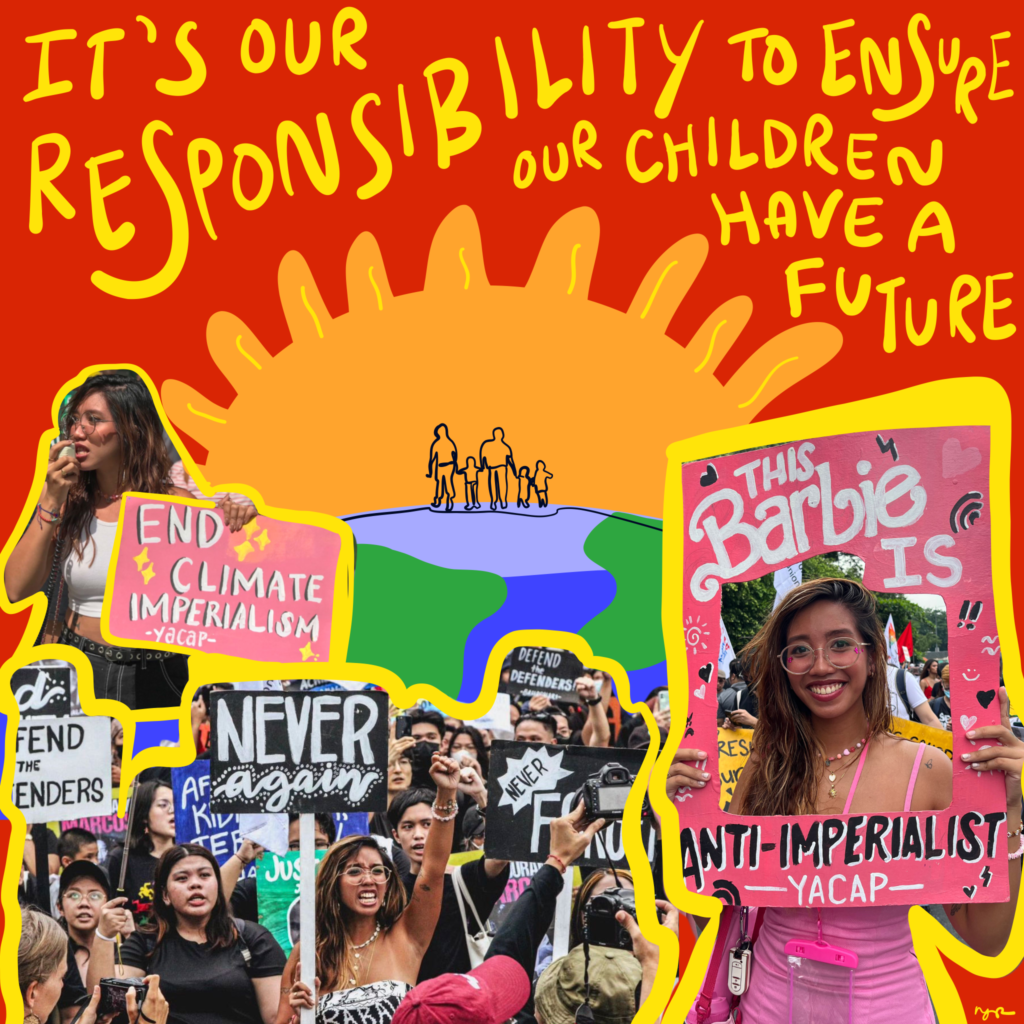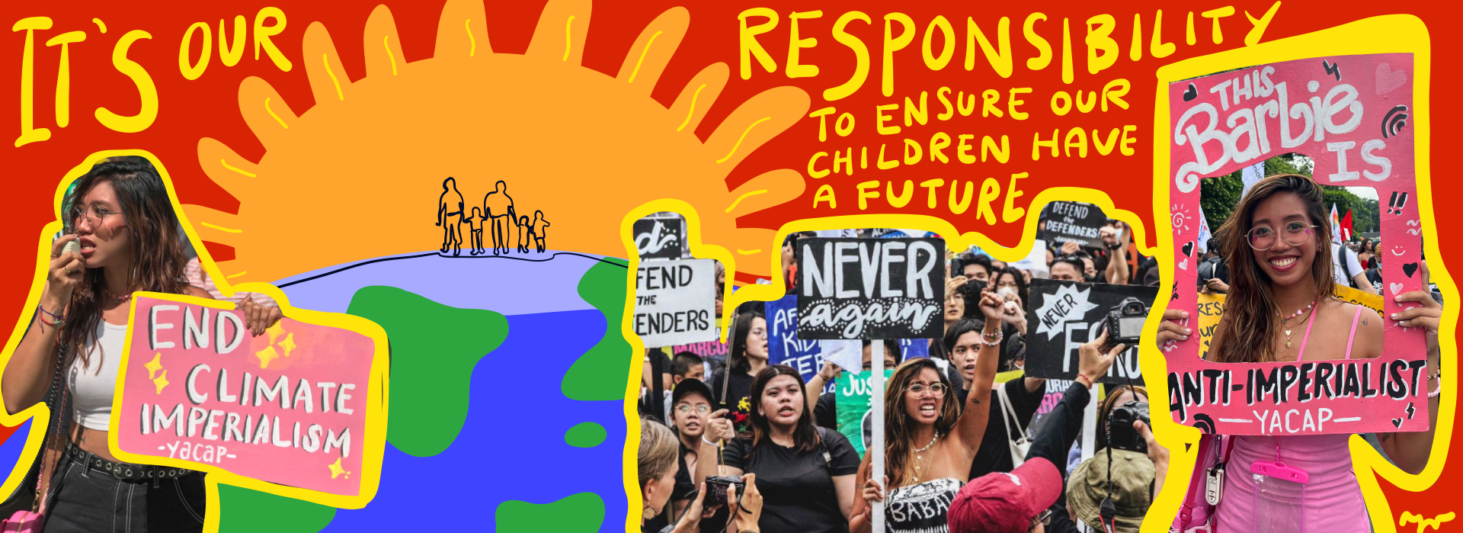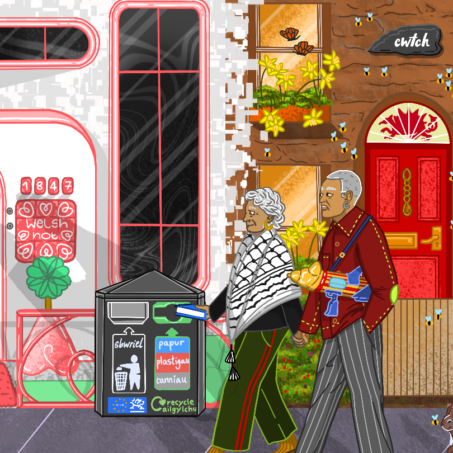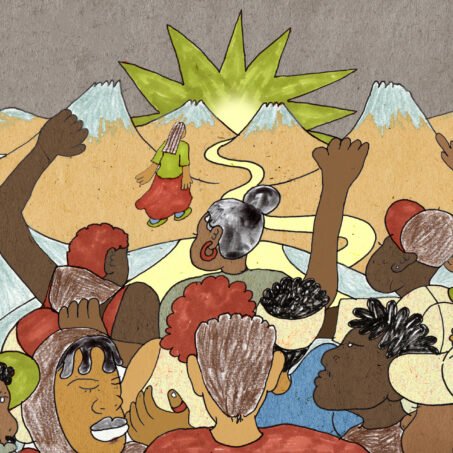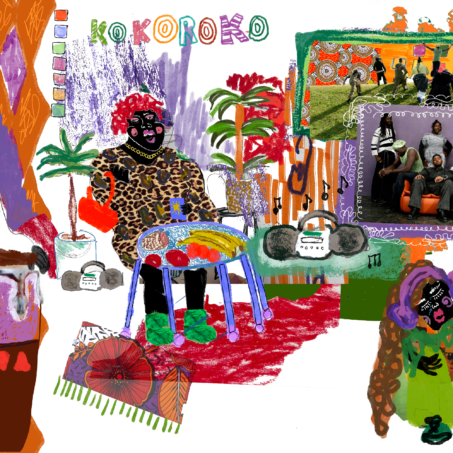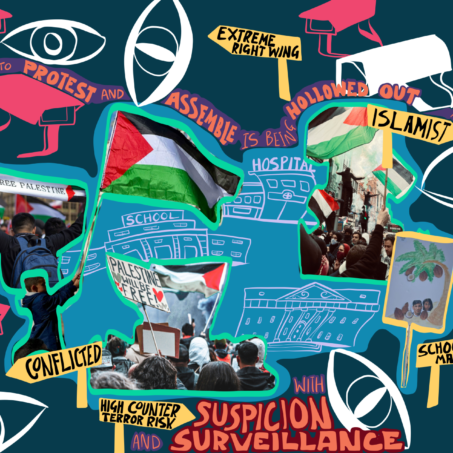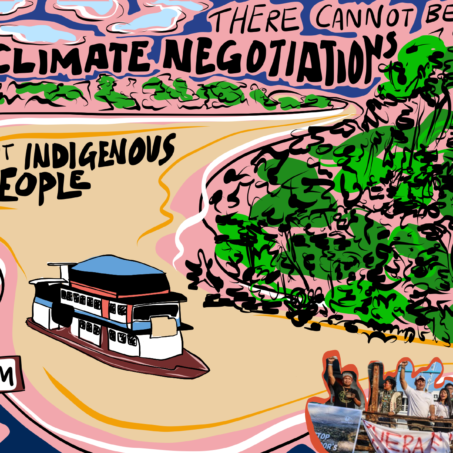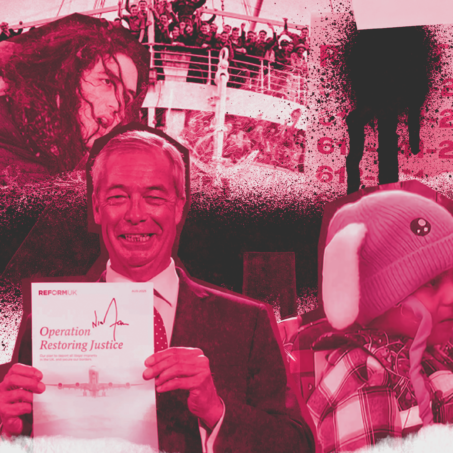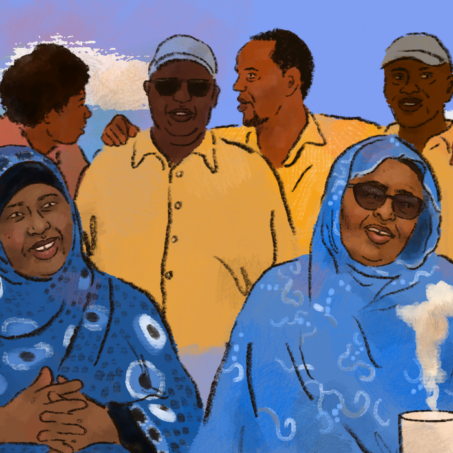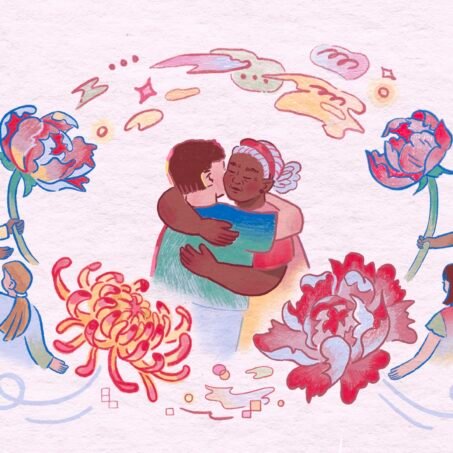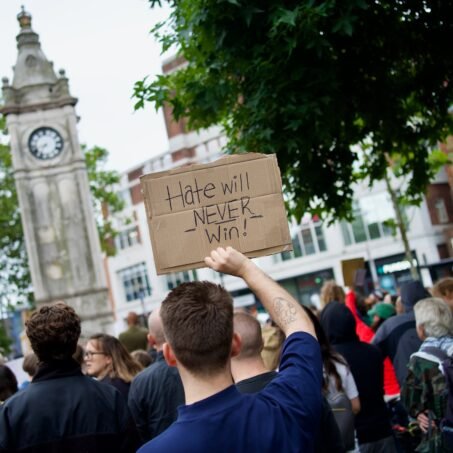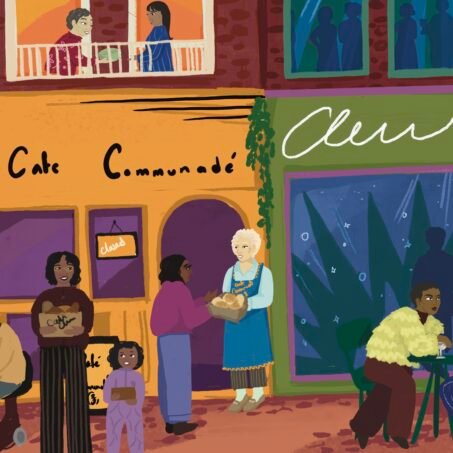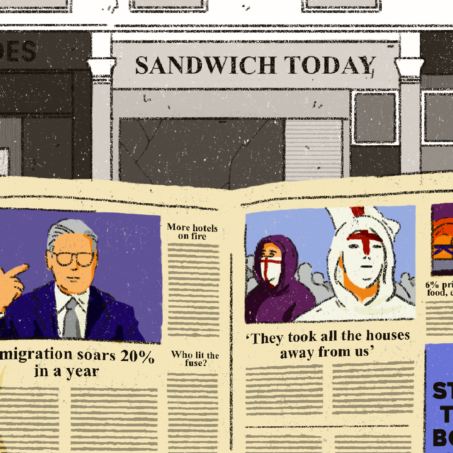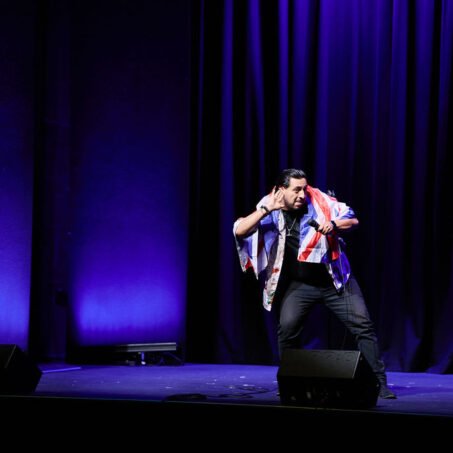My journey into climate activism started in the summer of 2022 when I saw the realities of the climate crisis on a friend’s instagram. They had shared images and videos of the flooding in Pakistan which had displaced about 8 million people.
Seeing the destruction caused by the rising water, families fleeing their homes, people crying, homes and livelihoods lost was heartbreaking. It frightened me, but I felt an urge to learn more. After doing some research, I learned more about the effects of the climate crisis on the Global South and became worried for my family in the Philippines.
What if, one day, they needed to leave their homes, their country, because it wasn’t safe to be there anymore? Images from natural disaster movies popped into my head, and my anxious mind spiralled, thinking of the worst. What was my role in all of this?
The climate crisis isn’t really something that’s talked about in my immediate circle, so I am grateful to have come across Parents for Future UK. It’s a grassroots climate organisation, aiming to inspire and empower parents and carers to use their voice and advocate for climate and biodiversity. We push for systemic change, to be part of the solution, and to help protect our children, and all children.
Parental responsibilities
In his essay Notes on the House of Bondage, James Baldwin wrote: “The children are always ours, every single one of them, all over the globe; and I am beginning to suspect that whoever is incapable of recognising this may be incapable of morality. Or, I am saying, in other words, that we, the elders, are the only models children have. What we see in the children is what they have seen in us – or, more accurately perhaps, what they see in us.”
As adults, we have a moral responsibility to children across the globe to ensure that they have a just, equitable and safe planet to live on. Baldwin is right: as we are the only models children have, we need to show them how to be the best person they can be to themselves, to others, and to the planet.
We have a tendency to rely on young people to do the work, to call for change. But that isn’t fair to them. We, as parents, made the choice to bring our children into this world, and it is our responsibility to ensure that our children have a future.
Meeting Mitzi
At Parents for Future UK, I met fellow Kababayan (Filipino), Jelly. We bonded over our fears for our motherland, and it was during one of our conversations in a group chat that Rowan, co-founder of Parents for Future UK, suggested we connect with Mitzi Jonelle Tan, a young climate activist from the Philippines.
Fast forward seven months and Jelly and I are sitting in the bar of Mitzi’s hotel. Mitzi was in London for a week, delivering talks at the Natural History Museum’s Generation Hope. We talked about the Philippines and climate activism within the Filipino diaspora. The Philippines has a tumultuous political history, filled with colonists and dictators, martial law and violence against climate activists. It mirrors the so-called hub of democracy in the UK. Its history only intensifies my worries on climate breakdown. If activists aren’t able to express their concerns and hold the government to account, how can we create the change we so desperately need? The same applies to the UK government. It is becoming increasingly hard to protest and to hold our government to account, with the government and media constantly painting protestors as a nuisance to society.
Hope and community
Being a climate activist can have its ups and downs. Some days you feel courageous and hopeful, ready to take on those in denial and persuade them to join the movement. Some days, anxiety takes over and you think, what’s the point?
The day I met Mitzi, I was worried about what I would hear about the state of the Philippines, the country most at risk from the climate crisis according to a 2019 report by the Institute for Economics and Peace. But as soon as she walked through the doors, I felt a sense of warmth, joy, and most importantly, hope.
My anxiety about the climate crisis suddenly felt manageable, like we could actually turn this thing around. When we asked her how she approaches being a climate activist, she explained that we should be approaching movements and activism with love. She shared that her mother was never interested in politics, but because she saw it was something that Mitzi participated in, she started learning about it as a way to connect with Mitzi. She described this urge to learn as a true expression of love.
“Love can push you into activism. Love is what gets you going. When people talk about love, it’s all fluffy and sparkly, but love can be a difficult thing. We have the worst fights with our parents but because of our love for them, we will stay with them and help them grow. I think this is how we should be approaching movements and activism.”
It is through love that we hold each other accountable, that we learn from each other, and we lift each other up.
She gives an example of the Filipino term “bayanihan” which basically translates to ‘for the common good of people’.
“The way bayanihan was taught to us in school was based on pre-colonial Philippines,” she explains. “We would have these houses on stilts near the ocean, and when high tides came, the entire community would come together to literally pick the home up and carry it to a place of safety. It’s such a strong example of how communities are stronger together – especially in the context of the climate crisis and increasing high tides.”
Bayanihan is becoming a common theme in my life: in motherhood, as well as in activism. We need to rely on each other, carry each other when we are low, and lift each other up when we are strong and hopeful.
As diaspora living in the Global North, we have a responsibility to our kababayan living in the Philippines, to share their stories, as well as ours, with the world. As Mitzi says, “it’s so important for diaspora communities to understand the bayanihan sense of community, and to teach it to everyone else. That even if I don’t know this person, they will come running.”
The power of the Filipino diaspora
I often worry about the disconnect between the Global North and the Global South. As Mitzi puts it, a position that the Global North has the privilege to take is: “it’s just another typhoon in the Philippines.”
As if these things are normal so we shouldn’t care.

Join our mailing list
Sign up for shado's picks of the week! Dropping in your inbox every Friday, we share news from inside shado + out, plus job listings, event recommendations and actions ✊
Sign up for shado's picks of the week! Dropping in your inbox every Friday, we share news from inside shado + out, plus job listings, event recommendations and actions ✊
Many activists in the Global South like Mitzi are fighting every day, tooth and nail, for systemic change, so that globally, we have a chance at maintaining a liveable planet. And as a person who lives in the Global North, I have a responsibility to amplify the voices of these activists.
There’s a particular strength in the diaspora. Mitzi reminds us that “we have such a powerful role because of our connection to the Philippines. We have a special connection and ability to be able to explain it to others.” We can elicit empathy and understanding from folks who wouldn’t normally care or understand. It is through their connection with us that brings awareness and pushes them to listen and care.
She uses the oil spill in Mindoro as an example. “It received next to no coverage because of the media black out,” she laments. “But, as a Filipino, you understand instantly that the story is not just about an oil spill, but of the devastation to delicate ecosystems and the livelihoods of fisher-folk in the region. The diaspora have a role to uplift and amplify the voices of, and the experiences of the communities back home.”
I remember sharing information about the oil spill on my Instagram, and I felt so hopeful seeing so many of my friends take note, and ask what they could do to help. I also noticed that some even started following accounts of Filipino climate organisations. I knew then that Mitzi was right. My voice was important. My voice shared the stories of people who didn’t have a voice, and people listened, people started to care.
Our right to protest
In the UK, we have the Public Order Bill, which was passed in April 2023. The bill introduced a range of new powers that increased the police’s ability to restrict and criminalise protests, as a response to protests and actions taken by Extinction Rebellion, Just Stop Oil and Insulate Britain.
Currently, we are able to speak out against injustices, and protest against things that need systemic change. However, we need to ensure that we are exercising that right and we need to speak out for those who cannot.
These situations are happening more and more across the world and it is something that needs to be talked about.
The Philippines is one of the most dangerous countries to be a climate defender.
Mitzi explains to us that there is a lot of red-tagging in the Philippines, which is when activists are labelled as terrorists, simply for calling out injustices carried out by the Philippine government.
In 2009, 32 reporters were killed when they were accompanying a local politician who was filing papers to run for governor. To address this, the government set up a Presidential Task Force on Media Strategy in 2016, but it has done nothing to stop the violence that continues to target journalists and activists today.
Every day that Mitzi and her fellow activists speak out is another day that their life is in danger.
Towards the end of our discussion, Mitzi brings the conversation back to the concept of bayanihan, and how we need to work together as a community and advocate for greater unity and cooperation. “I try to remember I’m not just anti fossil fuels or anti colonialism. I am pro-community. The profit-oriented system forces us to think as individuals – so as a form of activism, rebellion and resistance, I make sure to form connections and relationships. I see it as a form of activism because they don’t want us enjoying life.”
We need to build a community where we feel safe with one another, knowing that we all have each other’s back. We need to remember that we are all living in this country together, and so we need to actively work together to protect our rights and to enjoy life.
Our role as diaspora
Being a part of Parents for Future has been really impactful on my climate activism journey. I feel empowered to talk about the Philippines and to share the stories of my kababayan. I need to amplify their voices, and I know Parents for Future UK will do the same.
I want to be able to ensure that I am doing the most to protect my motherland and my kababayan. It’s ironic because in my youth, I took my culture and heritage for granted. But the older I get, the more pride and appreciation I have for my culture and heritage. I want to preserve it, take care of it and share it with my children, and ensure future generations are able to do so as well.
Jelly and I left feeling incredibly inspired to do more, to find more Filipinos in the UK, to spread awareness, and to inspire and empower others into action. We also felt a sense of hope that we could inspire non-Filipinos as well.
As Mitzi puts it, “the climate crisis affects everyone and affects every sector of society. That means it’s the duty of the climate justice movement to include everyone and encourage every sector of society to come together. And, you know, it’s a big job, so we all need to play a role.”
What role will you play?
What can you do?
- Visit Parents for Future UK to find out how to get involved or donate. You can also visit Parents for Future Global if you’re not UK-based and want to get involved.
- Follow Mitzi Jonelle Tan on Instagram and read her pieces featured on shado.
- Visit Masungi Georeserve to learn about the conservation area and how it is at risk.
- Sign the Save Masungi petition.
- Learn more about red-tagging.
